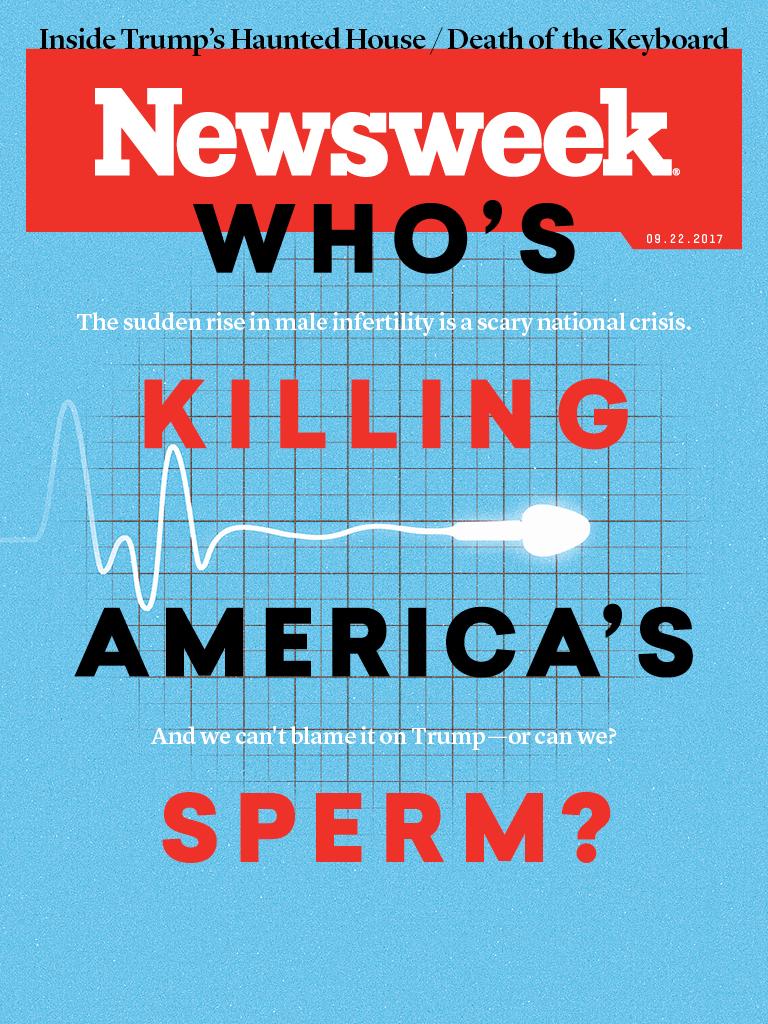Interesting reads
-
LOS ANGELES REVIEW OF BOOKS:
"Everything you want to know about America can be learned in a McDonald’s.”
-
@Salacious-Crumb said in Interesting reads:
Newsweek cover story feature this weeK, filed under TECH & SCIENCE
MALE INFERTILITY CRISIS IN U.S. HAS EXPERTS BAFFLED
It's not just the United States. It's the western world.
Too much bike riding?
-
Remembering William S Burroughs
http://www.gadflyonline.com/home/archive/August99/archive-burroughs.html

-
As part of the bankruptcy filing, Rathburn provided a list of assets. The inventory included 14 chairs, 10 file cabinets, 91 heads, 18 spines, six hips and a copy of the Hippocratic Oath. He put the total market value of the body parts at $160,900.
https://www.reuters.com/investigates/special-report/usa-bodies-rathburn/
-
A monumentally good data driven rant about the state of Australia's economy. And it's not a good picture.
Australia's Economy is a House of Cards
The largest four companies by market capitalisation globally as of the end of Q2 2017 globally were Apple, Alphabet, Microsoft and Amazon. Facebook is eight. Together, these five companies generate over half a trillion dollars in revenue per annum. That's equivalent to about half of Australia's entire GDP. And many of these companies are still growing revenue at rates of 30% or more per annum.
These are exactly the sorts of companies that we need to be building.
With our population of 24 million and labour force of 12 million, there’s no other industry that can deliver long term productivity and wealth multipliers like technology. Today Australia's economy is in the stone age. Literally.
By comparison, Australia's top 10 companies are a bank, a bank, a bank, a mine, a bank, a biotechnology company (yay!), a conglomerate of mines and supermarkets, a monopoly telephone company, a supermarket and a bank.
-
The Outlaw
The extraordinary life of William S. Burroughs. -
@antipodean said in Interesting reads:
A monumentally good data driven rant about the state of Australia's economy. And it's not a good picture.
Australia's Economy is a House of Cards
The largest four companies by market capitalisation globally as of the end of Q2 2017 globally were Apple, Alphabet, Microsoft and Amazon. Facebook is eight. Together, these five companies generate over half a trillion dollars in revenue per annum. That's equivalent to about half of Australia's entire GDP. And many of these companies are still growing revenue at rates of 30% or more per annum.
These are exactly the sorts of companies that we need to be building.
With our population of 24 million and labour force of 12 million, there’s no other industry that can deliver long term productivity and wealth multipliers like technology. Today Australia's economy is in the stone age. Literally.
By comparison, Australia's top 10 companies are a bank, a bank, a bank, a mine, a bank, a biotechnology company (yay!), a conglomerate of mines and supermarkets, a monopoly telephone company, a supermarket and a bank.
This was a fantastic read, have shared it amongst a few Aussie/kiwi mates. Thanks a lot.
-
Fantastic rant! Just got better and better.
Had always thought the Aus economy is a house of cards, over-dependence on mining, very inefficient federal/state/local government levels, massively over-taxed, the NSW state government payroll tax I just couldn't believe when I found out we were paying that, just a naked tax grab over and above PAYE, unbelievable.
Hope the Federal government might have the balls to try some of these things to promote growth but seems unlikely currently.
-
Yeah, I go round and round with my French friend's wife, who relies on it whenever we are traveling around over there. I don't know anyone, who I actually trust, who actually posts on that site, so I've got no idea why I should follow their recommendations.
-
Epic. Call Spielberg this would make a great mini series
-
"Suppose your law firm wants a summer associate. A law student with a doctorate in philosophy from Stanford applies. What do you infer? The applicant is probably brilliant, diligent, and willing to tolerate serious boredom. If you’re looking for that kind of worker—and what employer isn’t?—you’ll make an offer, knowing full well that nothing the philosopher learned at Stanford will be relevant to this job."
-
Why Has Regional Income Convergence in the U.S. Declined?
The past thirty years have seen a dramatic decline in the rate of income convergence across states and in population flows to wealthy places. These changes coincide with (1) an increase in housing prices in productive areas, (2) a divergence in the skill-specific returns to living in those places, and (3) a redirection of unskilled migration away from productive places. We develop a model in which rising housing prices in wealthy areas deter unskilled migration and slow income convergence. Using a new panel measure of housing supply regulations, we demonstrate the importance of this channel in the data. Income convergence continues in less-regulated places, while it has mostly stopped in places with more regulation.
-
@rocky-rockbottom I think an unfortunate and significant question for millennials (and beyond) is "how much better can you do your job than someone in China"? And if the answer is "not that much", the appropriate comparison is not how well you live compared to the boomers, but how well you live compared to the guy in China who might take your job.
It's a shit position to be in a high cost - low wage economy.
:quality(75)/https%3A%2F%2Fassets.lareviewofbooks.org%2Fuploads%2F201709JaffeGoldsteinArnade.png)



 Nautilus | Science Connected
Nautilus | Science Connected



